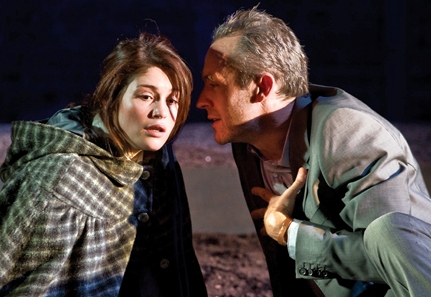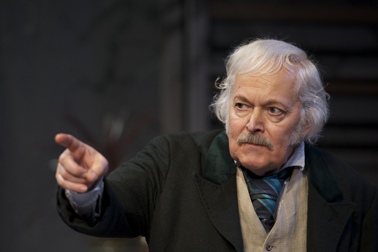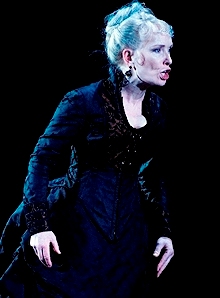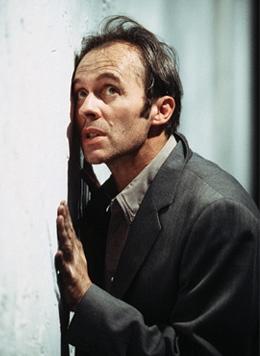Do Stanislavski and Lee Strasberg have a lot to answer for? Or can we place the blame, if blame it is, elsewhere? I’m referring to the steady, insidious advance of theatre mumbling. You may have noticed it at a theatre near you. It’s the art that disguises itself in “naturalism”, a kind of quasi “Method” style of acting.
It’s not always easy to detect. At first you think you may be mistaken. Isn’t this “great acting” I see before me, the eyes furrowed towards the floor, the voice low, even a little seductive? You blink – and blink again. You wait for something to happen on stage. But wait a minute. Nothing is happening. It’s a trompe d’oeil, it's the emperor’s new clothes.
I had the unmistakeable whiff of this phenomenon last week. Belatedly I’d gone to see a classic in north London. A “great actor” was leading the company. I waited expectantly for things to start happening. I’d better come clean. Stephen Dillane was your man on stage; the play, Ibsen’s The Master Builder, at the Almeida (Dillane pictured below right with Gemma Arterton in The Master Builder).
 I’d seen a very fine production of the same down in Chichester in the summer with Michael Pennington. Pennington is a “veteran” actor having a golden late flowering, and he conveyed a wealth of meanings in the role of Halvard Solness, the architect consumed by guilt and fear of being displaced by the new generation: by turns arrogant, dismissive, entranced, slightly crazed. I was completely engaged in his journey (pictured below left: Pennington as Halvard Solness).
I’d seen a very fine production of the same down in Chichester in the summer with Michael Pennington. Pennington is a “veteran” actor having a golden late flowering, and he conveyed a wealth of meanings in the role of Halvard Solness, the architect consumed by guilt and fear of being displaced by the new generation: by turns arrogant, dismissive, entranced, slightly crazed. I was completely engaged in his journey (pictured below left: Pennington as Halvard Solness).
And so I waited for Dillane, supposedly unmatched in the subtlety and originality he can bring to a role, to produce something unexpected, magical, compulsive, illuminating. But as with his Prospero earlier this summer in The Bridge Project’s The Tempest, Dillane’s Solness was stillborn. Something has happened to Dillane, and his affliction is not just unique to him. Maybe you could put it down to the influence of the above mentioned “Method”, or the dominating influence of TV, or sheer laziness on the part of modern directors to ensure actors are actually communicating and can be heard.
Whatever its origins, the effect over the past decade has been to create a gap between what an actor thinks they are conveying and what actually reaches out over the “footlights” commensurate with the Grand Canyon.
 It’s not just about sound, although that can be a major factor. A whispered word can carry way out beyond the boundary. Mark Rylance proved it over and over again at Shakespeare’s Globe, externalising interior thought and emotion in Hamlet or as Olivia in Twelfth Night. “Internalising” your emotion brings us back to Stanislavski; identifying your own emotion with that of your character. Dillane was clearly following that line in The Master Builder but instead of a communication of complex motivation and emotion, what arrived in my seat was stasis. Dead energy. Becalmed, it was as though Dillane was sucking the energy into himself, a black hole of interior introspection and self-immolation cutting off the oxygen from us, the audience. We gasped for some anchorage, something to hang onto. Nothing was forthcoming. Narrative and engagement flew out the door. Shut out, I cared even less.
It’s not just about sound, although that can be a major factor. A whispered word can carry way out beyond the boundary. Mark Rylance proved it over and over again at Shakespeare’s Globe, externalising interior thought and emotion in Hamlet or as Olivia in Twelfth Night. “Internalising” your emotion brings us back to Stanislavski; identifying your own emotion with that of your character. Dillane was clearly following that line in The Master Builder but instead of a communication of complex motivation and emotion, what arrived in my seat was stasis. Dead energy. Becalmed, it was as though Dillane was sucking the energy into himself, a black hole of interior introspection and self-immolation cutting off the oxygen from us, the audience. We gasped for some anchorage, something to hang onto. Nothing was forthcoming. Narrative and engagement flew out the door. Shut out, I cared even less.
Others employ this interior internalisation modus, though I hesitate to call it a modus vivendi; quite the contrary from a spectator’s point of view - it's more like a living death.
Director Katie Mitchell, for instance, has become very fond of pursuing a style that requires audiences to hang on every suppressed syllable. I rate Mitchell highly but admiration has gradually turned to exasperation as her actors, seemingly unwilling to let audiences in on their private game, steadily keep us at aural arm’s length. Mitchell is an innovator, experimenting particularly with theatre’s visual potentials in the age of video and camcorders. She seems less interested in experimenting, however, with its speech equivalent, something another practitioner, Andy Lavender, has explored with admittedly mixed but fascinating results in his 2008 Sarajevo Story, using all manner of digitalised, jump-cutting, overlapping sound trips.
Experimentation is fine; pushing the technological envelope as Robert Lepage and Simon McBurney and others have shown is no barrier to theatrical communion, excitement, stimulation – call it what you will.
 I watched aghast in the summer in Dublin as Lindsay Duncan (pictured right in Ibsen's John Gabriel Borkman, Abbey Theatre) and Alan Rickman – no slouches they and steeped in stage experience - proceeded in another Ibsen to mutter away to themselves with such intimidating, closed privacy, it was as though they were telling us to bugger off and leave them alone. Maybe we should have done exactly that. Perhaps the sound of dozens of seats rising and disaffected punters leaving the auditorium would work wonders. Perhaps we should be revolting, en masse, for the effect in Dublin was, as it was at last week's The Master Builder, to create disengagement. It was a huge turn-off.
I watched aghast in the summer in Dublin as Lindsay Duncan (pictured right in Ibsen's John Gabriel Borkman, Abbey Theatre) and Alan Rickman – no slouches they and steeped in stage experience - proceeded in another Ibsen to mutter away to themselves with such intimidating, closed privacy, it was as though they were telling us to bugger off and leave them alone. Maybe we should have done exactly that. Perhaps the sound of dozens of seats rising and disaffected punters leaving the auditorium would work wonders. Perhaps we should be revolting, en masse, for the effect in Dublin was, as it was at last week's The Master Builder, to create disengagement. It was a huge turn-off.
Now here, perhaps, it gets interesting. Ah, you may be saying, it’s the “alienation effect” at work. What all these directors have in common is a Brechtian approach to theatre, a challenging of the status quo to shake us out of our complacency and usual ways of thinking. How very challenging, if not particularly modern.
But I don’t think that’s what's at issue here - rather this is about egotism, about self-indulgence, and a massive collective directors’ amnesia about what theatre can be about, and should be about: communication.















Add comment